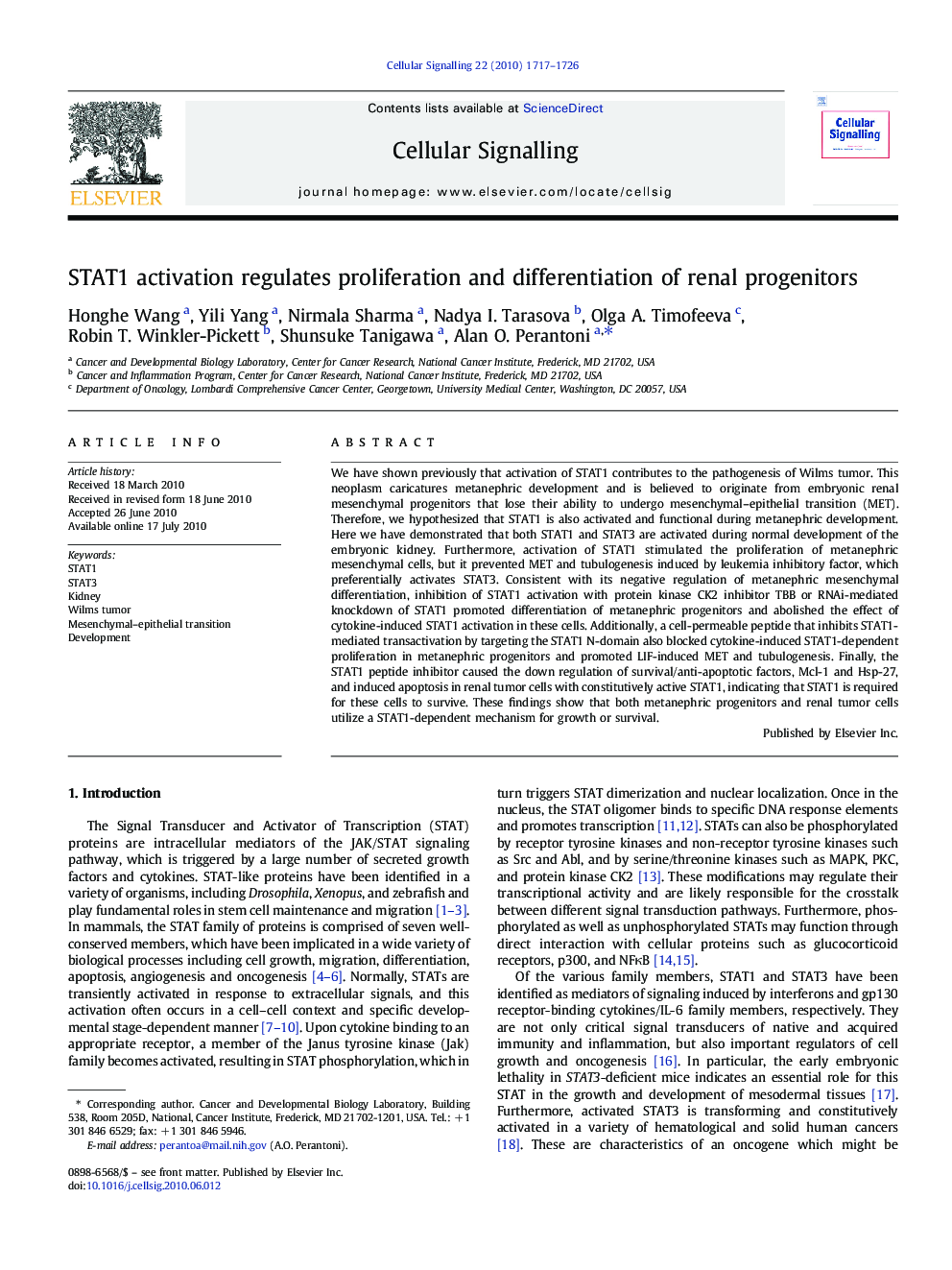| Article ID | Journal | Published Year | Pages | File Type |
|---|---|---|---|---|
| 1964800 | Cellular Signalling | 2010 | 10 Pages |
Abstract
We have shown previously that activation of STAT1 contributes to the pathogenesis of Wilms tumor. This neoplasm caricatures metanephric development and is believed to originate from embryonic renal mesenchymal progenitors that lose their ability to undergo mesenchymal-epithelial transition (MET). Therefore, we hypothesized that STAT1 is also activated and functional during metanephric development. Here we have demonstrated that both STAT1 and STAT3 are activated during normal development of the embryonic kidney. Furthermore, activation of STAT1 stimulated the proliferation of metanephric mesenchymal cells, but it prevented MET and tubulogenesis induced by leukemia inhibitory factor, which preferentially activates STAT3. Consistent with its negative regulation of metanephric mesenchymal differentiation, inhibition of STAT1 activation with protein kinase CK2 inhibitor TBB or RNAi-mediated knockdown of STAT1 promoted differentiation of metanephric progenitors and abolished the effect of cytokine-induced STAT1 activation in these cells. Additionally, a cell-permeable peptide that inhibits STAT1-mediated transactivation by targeting the STAT1 N-domain also blocked cytokine-induced STAT1-dependent proliferation in metanephric progenitors and promoted LIF-induced MET and tubulogenesis. Finally, the STAT1 peptide inhibitor caused the down regulation of survival/anti-apoptotic factors, Mcl-1 and Hsp-27, and induced apoptosis in renal tumor cells with constitutively active STAT1, indicating that STAT1 is required for these cells to survive. These findings show that both metanephric progenitors and renal tumor cells utilize a STAT1-dependent mechanism for growth or survival.
Related Topics
Life Sciences
Biochemistry, Genetics and Molecular Biology
Biochemistry
Authors
Honghe Wang, Yili Yang, Nirmala Sharma, Nadya I. Tarasova, Olga A. Timofeeva, Robin T. Winkler-Pickett, Shunsuke Tanigawa, Alan O. Perantoni,
